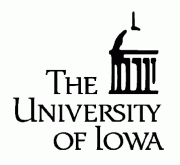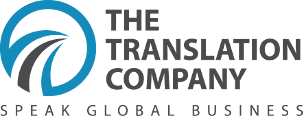
University of Iowa – Iowa City
- Undergraduate
- Continuing Education
- Graduate
- Professional Studies
About the Program
Program Description
For more than forty years literary translation has been an integral part of both curriculum and conversation about writing at the University of Iowa. Emerging from the idea that translation is much more than a matter of carrying a work from one language to another like so much coal in a tram, the translation program encourages students to explore not only the form and content ofworks, but the context—literary, cultural, historical—from which original works arise. Translators in the program focus on creating works that convey both the timelessness of the original and the immediacy of contemporary language and literature. In the Translation Workshop and in a variety of translation-based seminars, students also examine ideas of literariness, cultural history, cultural politics, and authority as they relate to the relationship between authors and texts, authors and translators, translations and readers, and the media landscapes in which they circulate.
In addition to the comparatists with whom it most immediately shares its faculty and its curriculum, the translation program enjoys the distinction of a close relationship with the International Writing Program, which brings dozens of writers to Iowa City for a three-month fall residency, and with the other MFA writing programs at the University of Iowa (in fiction, poetry, playwriting, and non-fiction). Students in the program are able to collaborate on projects with colleagues in a variety of genres and disciplines as well as with visiting writers from around the world.
Students in the Translation MFA Program publish eXchanges, a journal of literary translation. A vibrant source of international writing in translation, the journal provides hands-on editing and on-line publishing experience, as well as an occasional venue for their works. The program also regularly hosts and co-hosts conferences, invites speakers from around the world for readings and short-term residences, and is a constituent unit of the Virtual Writing University.
Graduates of the program have gone on to work in the world of professional publishing, as free-lance translators, or have continued on to Ph.D. programs in related disciplines. In recent years their works have been published by Graywolf, Seven Stories, Autumn Hill Books, Words Without Borders, The Iowa Review, 91st Meridian, TWO LINES, Circumference, The Literary Review, Passport, Absinthe, and many others.
The center of the MFA is the Translation Workshop, and every candidate must take a minimum of 12 hours of this.
Attention to translation theory is an integral part of the Workshop’s procedures. However, MFA candidates are expected, in addition, to familiarize themselves with the history of translation in the Western tradition. This is normally accomplished through guided reading (Individual Study), or by taking the course in the History and Theory of Translation, when offered.
The remaining hours are taken from courses decided upon by the candidate and the committee, but coverage of the following distributional areas must be included.
– Foreign Literature(s) and Culture: 9-12 hours (generally taken in the language)
- Creative Writing, Stylistics, Grammar: 6 hours
- Criticism: 6 hours (from among 48:201, 48:202, 48:203, 48:261, 48:262)
- Electives: 6 hours (generally taken from within the above areas)
- Thesis: 6 hours Thesis and Examination
The thesis is a translation of a collection of poems or short stories, a short novel, or a drama, with an introduction which sets the work within its literary context. The introduction, in addition to discussing problems of translation, should present a rationale for the strategies and techniques adopted, its point of departure being an analysis of the structure and style of the source text. An oral defense of the thesis examines in detail both the candidate’s translation and the introductory essay.
Costs
Check with the University.
Editor notes
Part of the Department of Cinema & Comparative Literature, the MFA in Translation offered by the University of Iowa focuses mainly on literature theory, not only improving the student’s translation skills, but also his literature criticism as a means to perfection his capacity of translating literary texts, since the most important thing in literary translation is understanding and interpreting thetext before translating it.
Link
http://www.uiowa.edu/~ccl/mfatranslation.shtml
Contact Information
University of Iowa
Department of Cinema & Comparative Literature
E210 AJB, Iowa City IA 52242-2004
Phone: (319) 335-0330
Fax: (319) 335-3446
E-Mail: cinema-complit@uiowa.edu

